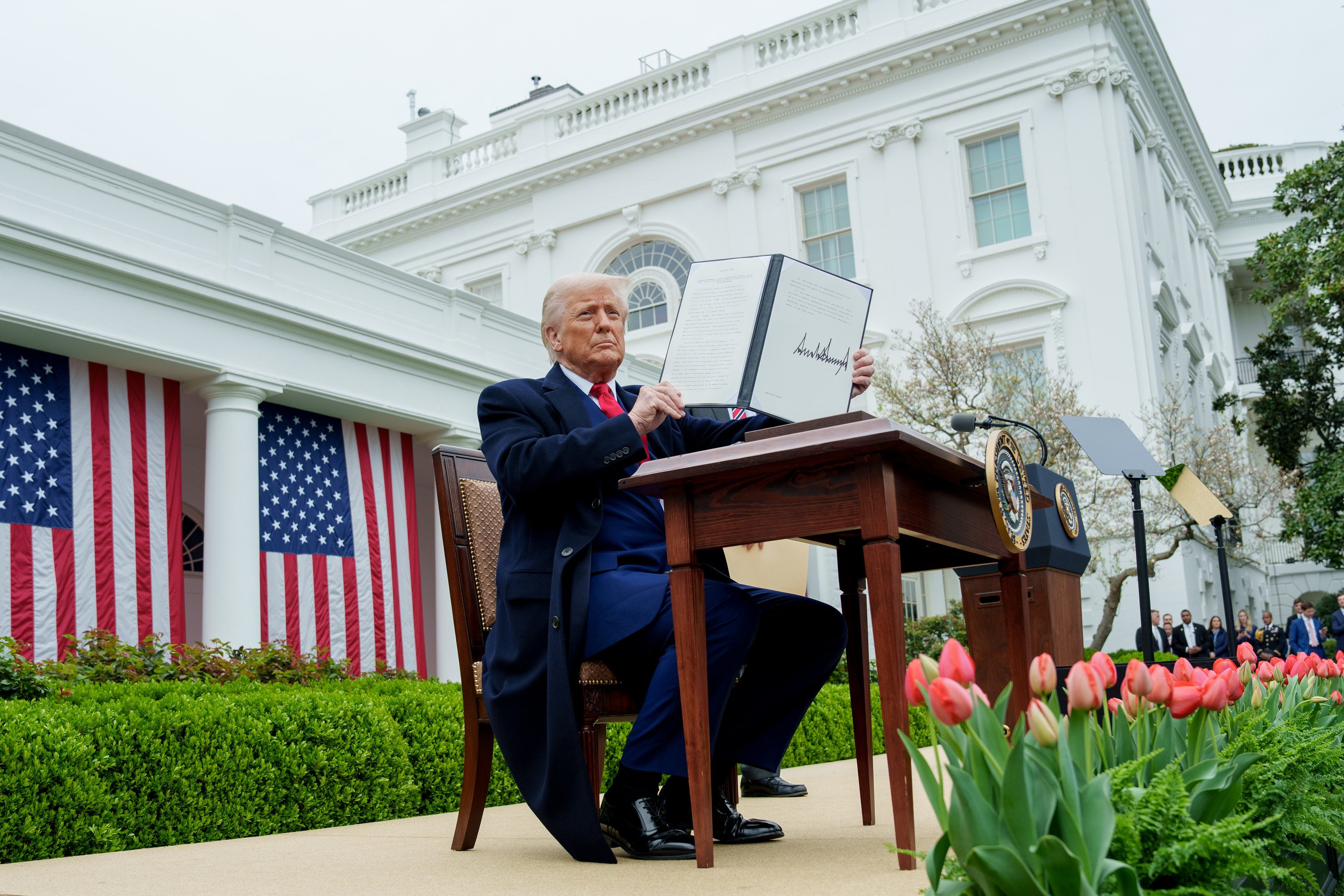Today’s Headlines and Commentary
Lawfare’s daily roundup of national security news and opinion
Published by The Lawfare Institute
in Cooperation With

President Trump on Saturday predicted that this coming week will be “one of the toughest weeks” of the COVID-19 pandemic, as data projects that the volume of cases in several U.S. regions will hit their peak within seven days, reports NPR. The novel coronavirus is almost certainly killing Americans who are being left out of the official count, writes the Washington Post. The CDC counts only deaths in which the presence of the coronavirus is confirmed in a laboratory test.
President Trump said on Saturday that 1000 additional military personnel are being deployed to New York to assist the city with its COVID-19 outbreak response, according to the Hill.
On Sunday the President again promoted the use of an anti-malarial drug to treat the novel coronavirus, issuing advice that goes beyond the limited scientific evidence of the drug’s effectiveness and against the advice of top public health officials, reports the New York Times. In one-on-one phone calls with Trump, the president’s personal lawyer Rudy Giuliani has been promoting the use of the anti-malarial drug—hydroxychloroquine—and has pushed the drug on his Twitter feed and podcast, according to the Washington Post. And in mid-March, President Trump personally pressed federal health officials to make malaria drugs available despite the fact they had never been tested as a treatment for COVID-19, writes Reuters.
Defense Secretary Mark Esper yesterday defended the firing of the Navy captain who raised concerns about a coronavirus outbreak aboard the aircraft carrier USS Theodore Roosevelt, calling it an “example of how we hold leaders accountable for their actions,” reports Politico. Capt. Crozier was fired for writing a letter to Navy leaders notifying them of an outbreak of cases of COVID-19 among his sailors instead of following the proper chain of command.
Calls are growing for the U.S. to reduce its dependence on China for key medicines and supplies, with Peter Nararro—Trump’s economic advisor—pledging last week that the U.S. would move towards building its own capabilities to produce drugs and medical supplies, writes the Hill. Both Senate Democrats and Senate Republicans have raised concerns about the U.S.’s supply chain reliance on China, particularly in the health care context.
A review of federal purchasing contracts shows federal agencies largely waited until mid-March to begin placing bulk orders of N95 respirator masks, ventilators and other protective equipment, according to the Associated Press. After the outbreak of the novel coronavirus in China in early January raised the prospect of a global pandemic, the Trump administration did not act in almost two months that could have been used to bolster federal stockpiles of medical supplies.
The Trump administration’s move to restrict the export of masks has pushed Canada to turn to China, reports Politico. Canada is set to receive millions of masks from China after U.S.-based manufacturer 3M said it got directions to stop exporting N95 respirators. Canada’s turn to China comes despite ongoing tensions between the two countries following the 2018 arrest of Huawei senior executive Meng Wanzhou in Vancouver on a U.S. extradition request.
The Trump administration is expected to announce today that it is designating a white supremacist group based in Russia as a specially designated global terrorist organization, according to the New York Times. The designation of the Russian Imperial Movement will allow the Treasury Department’s Office of Foreign Asset Control to block any American property or assets belonging to the group and will bar Americans from financial dealings with the organization.
President Trump on Friday fired Intelligence Community Inspector General Michael Atkinson, whose insistence on telling lawmakers about a whistleblower complaint triggered impeachment proceedings last fall, reports the New York Times. Atkinson says he believes Trump ousted him because of his impartial handling of the whistleblower complaint related to the President’s dealings with Ukraine, writes Politico.
The Taliban said their peace deal with the U.S. is nearing a breaking point, accusing Washington of violations of the agreement—including drone attacks on civilians— and criticizing the Afghan government for delaying the release of 5,000 Taliban prisoners, according to the Washington Post.
The Foreign Intelligence Surveillance Court ordered the Justice Department to review 29 wiretap applications to determine whether they were so flawed that approvals to monitor Americans shouldn’t have been granted, reports the Wall Street Journal. The Friday order followed a Justice Department Inspector General report last week that found widespread problems with components of the surveillance applications that are intended to verify the accuracy of wiretap requests.
ICYMI: Yesterday on Lawfare
Carter Malkasian identified risks in the U.S.-Taliban agreement related to conditionality and intra-Afghan negotiations, and laid out the resulting complications for U.S. policy.
Quinta Jurecic shared a D.C. District Court ruling denying Guantanamo detainee Saifullah Paracha’s petition for habeas corpus.
Jen Patja Howell shared an episode of the Lawfare Podcast featuring an interview with Stephen Holmes of New York University Law School on liberalism in the 21st century.
Email the Roundup Team noteworthy law and security-related articles to include, and follow us on Twitter and Facebook for additional commentary on these issues. Sign up to receive Lawfare in your inbox. Visit our Events Calendar to learn about upcoming national security events, and check out relevant job openings on our Job Board.




